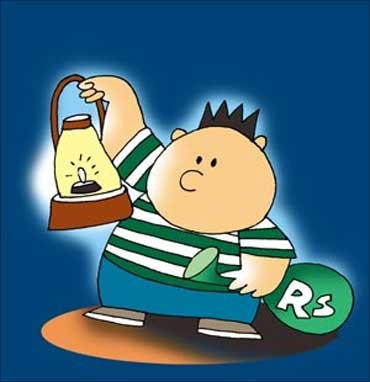
Bangalore-based certified financial planner Anil Rego says small saving schemes used to provide a cushion when interest rates were around six per cent. These schemes gave extra income of two per cent per annum, with a good eight per cent return on most schemes.
However, these schemes now cease to be lucrative in spite of a raise in most of their returns. Reason: These schemes are now linked to the market.
Like a five-year National Savings Certificate (NSC) is linked to the five-year government bond yield, so is the five-year Post Office recurring deposit, term deposit and Post Office Monthly Income Plan. Similarly, a 10-year NSC and Public Provident Fund (PPF) is linked to 10-year government bonds.
The good news is that, presently, these schemes are returning more than what they were. On the other hand, the returns will fluctuate from here on.
...

This is because the 10-year government bonds, for instance, have moved between six and 10 per cent in the past 10 years. So, if this had come into effect some years before, gross returns would have gone as high as 10 per cent and fallen below six per cent.
Given that the Reserve Bank of India (RBI) has kept benchmark rates unchanged, it signals a reversal in the rate cycle. The apex bank is expected to start cutting over the next three to six months. This will translate into lower returns for investors of small saving schemes as well. If this move had come in a year earlier, investors would have benefited immensely.
Senior Citizen Savings Schemes (SCSS), popular with retirees, will also be linked to the 10-year yields, putting your retirement corpus at risk.
...

Bankers also say yields on government bonds will ease in the coming weeks, as the mid-term policy review mentioned RBI conducting open market operations (OMOs) in case of liquidity strain. As liquidity eases, the yields will fall. The government borrowing programme will also determine the yields, to a large extent.
The returns on these schemes will be announced in the beginning of the year and fixed for that financial year. If the yields are high in the beginning of the year, you benefit. Otherwise, you will be stuck with a lower rate.
Certified financial planner D Sundararajan prefers debt schemes where the returns are fixed for the entire tenure. That's why he suggests investors withdraw from small saving schemes to invest in proposed tax-free bonds from the National Highways Authority of India (NHAI) and Power Finance Corporation (PFC), as the returns will be fixed for 10 and 15 years.
"You can even withdraw from PPF and invest in these bonds as the returns are likely to be decent and fixed for the entire tenure," he says.
...

The small saving schemes also disappoint when compared on the basis of returns. There are more instruments giving higher returns. For instance, a 10-year fixed deposit with the State Bank of India will fetch you 9.25 per cent annually.
The interest income will be added to your income and taxed. The same applies for returns from any of the small saving schemes, barring PPF (interest is tax- exempt). Many banks are giving more than 10 per cent.
Lakshmi Vilas Bank is offering 10.5 per cent for anywhere between one and two years, Karur Vysya Bank is offering 10 per cent for one to two years.
...

Suresh Sadagopan, a certified financial planner, does not recommend Post Office schemes at all.
"Even if the returns are decent, there are too many hassles with these products in terms of servicing. You need to be present in person at the time of investing/redeeming. And, you can redeem the investments only from the branch you started it in," he explains.
Apart from PPF, none of the other schemes can be routed through a bank. Also, none of these schemes are instrumental in financial planning, except PPF. Therefore, he recommends PPF and fixed maturity plans, where the post-tax returns will be around 8.2 per cent (for over a year).